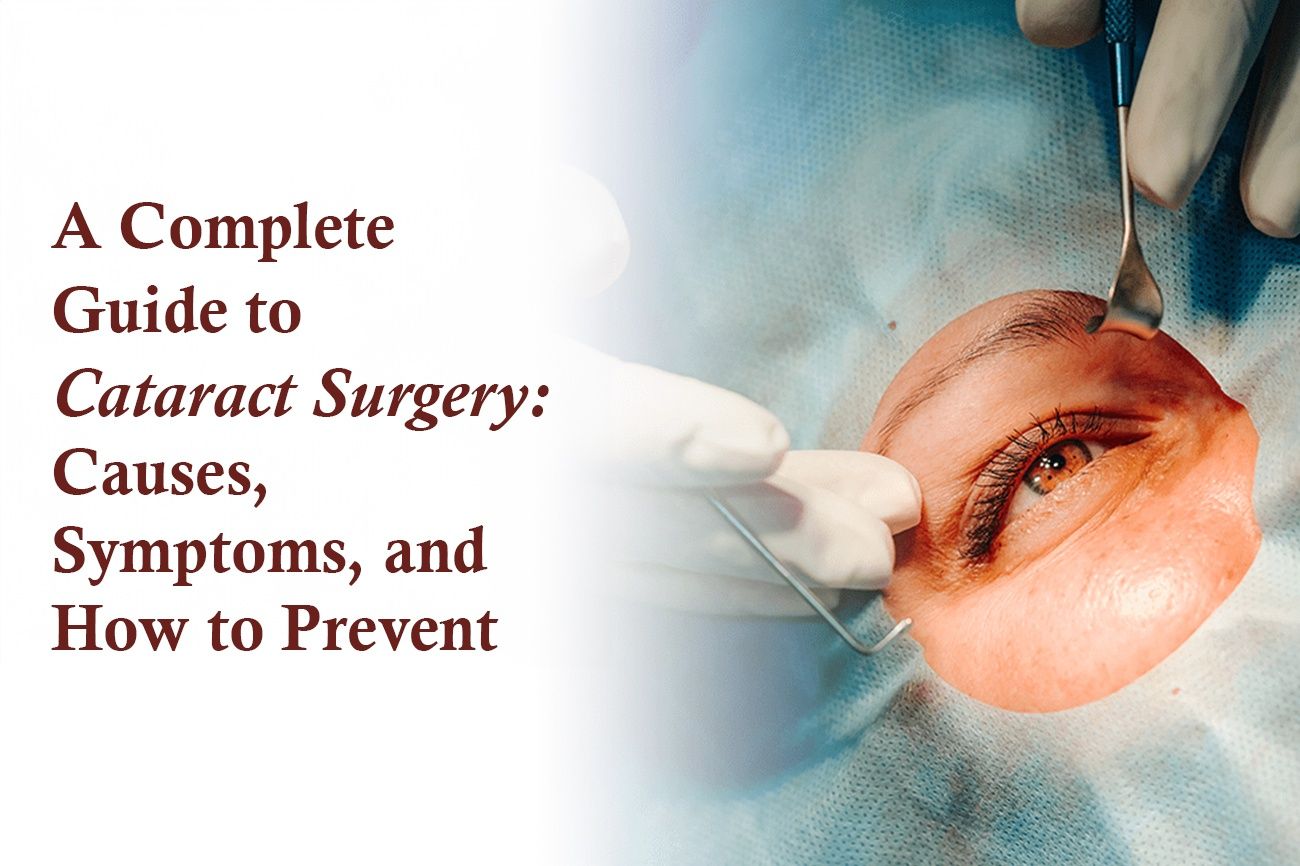Cataracts are a principal cause of vision impairment worldwide, affecting millions yearly. However, a comprehensive understanding of cataracts can significantly empower individuals, enabling them to proactively approach their visual health.
We’ll unravel the mystery of cataracts, discover their common causes and symptoms, and discuss the crucial steps one can take toward their prevention. By gaining a deeper insight into these aspects, you can make informed decisions regarding your sight health and potentially minimize the impact of cataracts on your life.

-
Unveiling the Causes of Cataracts
At its core, a cataract is the clouding of the eye's natural lens, often compared to looking through a foggy window. Several factors can contribute to the development of cataracts, including:
-
-
Genetic Makeup: Sometimes, the predisposition to develop cataracts is woven into one's DNA.
-
Underlying Medical Conditions: Diseases like diabetes can accelerate cataract formation.
-
Lifestyle choices: Smoking and alcohol consumption are known risk factors.
-
Environmental Exposures: Prolonged exposure to UV rays without adequate eye protection can lead to cataracts.
-
Past Eye Injuries or Surgeries: These can increase the likelihood of later cataract development.
-
-
Recognizing the Symptoms
Cataracts can sneak up quietly. However, certain signs should prompt a discussion with your eye care professional:
-
-
Blurred or Cloudy Vision: When sharp images become blurry, or you feel like you're looking through a haze.
-
Increased Sensitivity to Light: Bright lights suddenly begin glaring or becoming uncomfortable.
-
Colors Seem Faded: Your world seems washed out, or colors don't pop as they used to.
-
Night Vision Troubles: Driving at night becomes daunting due to decreased vision clarity.
-
Frequent Prescription Changes: Needing new glasses or contact lens prescriptions more often than usual.
-
-
When to Consider Surgery?
Cataract surgery is recommended when quality of life is significantly affected. It's a personalized decision, typically recommended when daily activities—like reading or driving—become challenging.
Cataract surgery removes and replaces the affected lens with an artificial Intraocular Lens (IOL). It is a successful and commonly performed medical procedure globally. This procedure is predominantly carried out on an outpatient basis, necessitating only minor sedation, and offers a high success rate.
The majority of patients report a substantial enhancement in their vision post-surgery. The pivotal advantages of undergoing cataract surgery include a marked improvement in visual clarity, a significant boost to the quality of life, and greater independence and safety in daily activities.
-
Prepping for the Procedure
Before proceeding with cataract surgery, patients undergo a meticulous pre-operative evaluation to choose the most suitable intraocular lens (IOL) for their specific needs. This selection process involves a series of comprehensive eye tests that measure the eye's size and shape, ensuring the highest compatibility and vision correction with the new lens.
-
The Recovery Journey
Follow your doctor's advice carefully for a quick and easy recovery. This may include using prescribed eye drops, wearing protective eyewear, and scheduling follow-up visits. Avoid participating in activities that could strain your eyes or expose them to potential contaminants.
-
How to Prevent Cataracts?
While not all cataracts can be avoided, certain precautions can mitigate risk factors:
-
Sunglasses: UV protection glasses are necessary to protect your eyes from the sun's harmful rays.
-
Nutritious Diet: Incorporate foods rich in antioxidants and vitamins C and E to maintain your eye health.
-
Manage Health Conditions: Keeping systemic health issues like diabetes in check can decrease cataract risk.
-
Kick the Smoking Habit: Smoking accelerates many eye diseases, including cataracts.
-
Understanding cataracts arm you with the knowledge to address this common condition proactively. From recognizing early symptoms to undergoing cataract surgery, being informed ensures you can make choices that best suit your lifestyle and vision needs.
Remember, regular eye examinations play a vital role in catching cataracts early, providing the best chance for prevention and effective treatment. Stay vigilant, prioritize eye health, and enjoy a clear vision for years to come.
